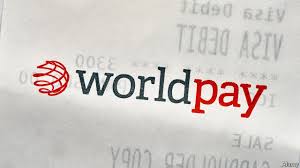FIS’s $43bn takeover of Worldpay

YOUR HOME is about to become a department store. Of the 27% of American consumers who own voice-activated speakers, more than a quarter already use them to shop. You may soon start ordering groceries via a panel on your fridge or buying accessories through an interactive mirror in the bedroom. Social-media outlets are also after your money: before long, that red coat you liked on a friend’s Instagram page will be just a click away.
The continuing boom in e-commerce—which is still growing at a breakneck 18% a year—is forcing speedy change on a once-staid sector: the invisible pipework that powers payments. On March 18th FIS, an American company which provides information technology to around 14,000 banks, agreed to buy Worldpay, a payments plumber, for $ 43bn including debt—the largest deal ever in the payments industry. It marks a sharp escalation in the battle for a market that BCG, a consulting firm, expects almost to double in size, to $ 2.4trn, between 2017 and 2027.
Payment technology is already pretty nifty. When a shopper swipes her credit card at a till, the company providing terminals to the shop (the “merchant acquirer”) asks the lender that issued the card (the “issuer”) to confirm that she has enough funds. That electronic query reaches the lender—whether around the corner or across the world—in milliseconds. If the answer is “yes”, the shop has a guarantee it will eventually receive the money, and the shopper can take the goods.
The acquirer usually requests funds from card issuers only at the end of the day, after the shop submits its full list of transactions. Payment networks, such as Visa or Mastercard, then move the money, which may take days to reach retailers’ accounts. They also set the complex rules by which the issuers and acquirers they licence must abide. For example, acquirers provide insurance: they repay customers who, say, have bought tickets from an airline that goes bust before they fly. They also store the granular data needed to withhold deposits or execute partial refunds.
This system was designed for a brick-and-mortar world. But e-commerce has spawned new payment methods, such as digital wallets, and is changing constantly. Websites and apps can upgrade their software daily; acquirers might do so every quarter or two, says Chris Jones of PSE, a consultancy. Companies dubbed “gateways” now act as multi-socket adapters, connecting acquirers to morphing e-commerce firms. “Digital storefronts” like Shopify, a software company, add another layer: they cater to small vendors, enabling them to create a sleek website connected to a gateway in minutes.
Banks have been in retreat from this fast-evolving world. “They are like turkeys waiting for Christmas,” says Mark O’Keefe of Optima, a consultancy. Card issuers outsource most of their processing to technology providers like FIS. Merchant acquiring used to be part of banks’ domain, but it was never part of their core business. In the past decade or so many have spun them off. The financial crisis accelerated this. In 2010 Royal Bank of Scotland (RBS) sold Worldpay to Bain Capital and Advent International, two buy-out firms, for £2bn ($ 2.7bn) as a condition of the lender’s bail-out by the British taxpayer.
RBS may now feel a tinge of regret. After a £9.3bn merger with Vantiv, an American peer, last year, Worldpay is the world’s largest acquirer. It says it processed over 40bn transactions in 2018. Other non-banks, such as Global Payments, have also become giants (see chart). This is partly due to organic growth. Acquiring is more profitable than other processing jobs, which have become commoditised. It is also cheaper and faster to scale on the web: installing card terminals in-store requires labour and local presence. It helps that the volume of transactions, on which acquirers levy a fee, is rocketing, propelled by voracious spending in emerging economies.
Mergers, often orchestrated by private-equity firms, have consolidated parts of the industry. Acquirers have bought gateways; big technology providers have snapped up smaller software firms. But vertical takeovers by broad technology providers of payments specialists, like FIS’s of Worldpay, are new. The merger comes just two months after Fiserv, FIS’s main competitor, agreed to buy First Data, a rival of Worldpay, in a $ 22bn deal. Both mark the start of new phase of an M&A chess game. Pawns have been captured, but most big pieces still roam free. Since these play very diverse roles, dozens of possible combinations make strategic sense, says Lisa Ellis of MoffettNathanson, a research firm.
Vertical mergers will allow companies to cut costs, gain pricing power and cross-sell products—often to banks, their former owners. This will give them the firepower to go for the real target: establishing a truly global acquiring network. Multinationals such as Hilton or IKEA would love the simplicity of signing one single contract covering their payment needs worldwide. The Worldpay deal is a step in that direction. The firm, which focuses on Europe and America, should benefit from FIS’s existing relationships in emerging markets.
Seemingly innocuous deals could precipitate the scramble. On March 11th PayPal, a digital-wallet pioneer now worth $ 119bn, announced a $ 750m investment in MercadoLibre, a Latin American e-commerce platform. Worldpay, which has ambitions in the region, was surely watching: PayPal uses First Data as its acquirer. FIS is already thinking about the next round. “It won’t surprise us that other companies come together,” says John Crawford of FIS. “We don’t expect it to be our last deal either.”
